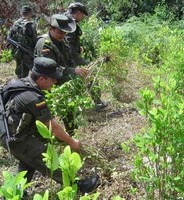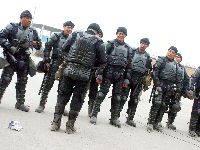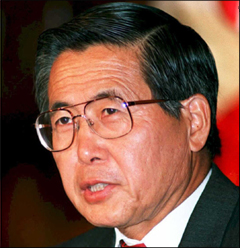
Coca eradication in Huánuco
The farmers of Huánuco, who have recently been involved in violent civil unrest to protect their right to crow cocaine-precursor crop coca, have requested temporary financial aid from the state while they change over to growing cacao, from which chocolate is made. According to Grover Pango, who represents the government in talks regarding coca eradication, this is the first major breakthrough that has been reached.
Talking to the Andina agency, he added that the government will stand firm on the eradication of the coca crops of the Upper Huallaga area, which are used almost exclusively for cocaine production rather than for traditional and legal leaf chewing and coca tea production. “That is not a point at issue, the eradication of coca will continue,” he said.
He stated that the talks are about the people of Huánuco and the problems they face, and include Regional President Jorge Espinoza as well as representatives of the coca growers’ movement. They were recently started as a measure to quell growing civil unrest in Huánuco, and will last until July 9th, with the aim of forming an inclusive development plan for the region.
Pango revealed that one of the key demands of the growers’ movements is to know what will happen to the 34 of their members who were arrested during the recent outbreak of violence.
They also demand explanations for the allegedly violent and abusive invasion by police of fields growing crops other than coca in the same region. Government sources say that the case is currently under investigation.
Talking to RPP radio news, he said that the talks are a key opportunity for substituting illegal coca growing with alternative crops, which he hopes will be part of the development plan. He added that cacao presents an interesting possibility for the region, and that the government is considering investment in increased cacao production as a replacement for the coca – which has historically been the only profitable crop in the region.
Filed under: Around Peru, Commerce, Drugs, Good news!, Lima, People, Politics, Terrorism, Violence | 2 Comments »






